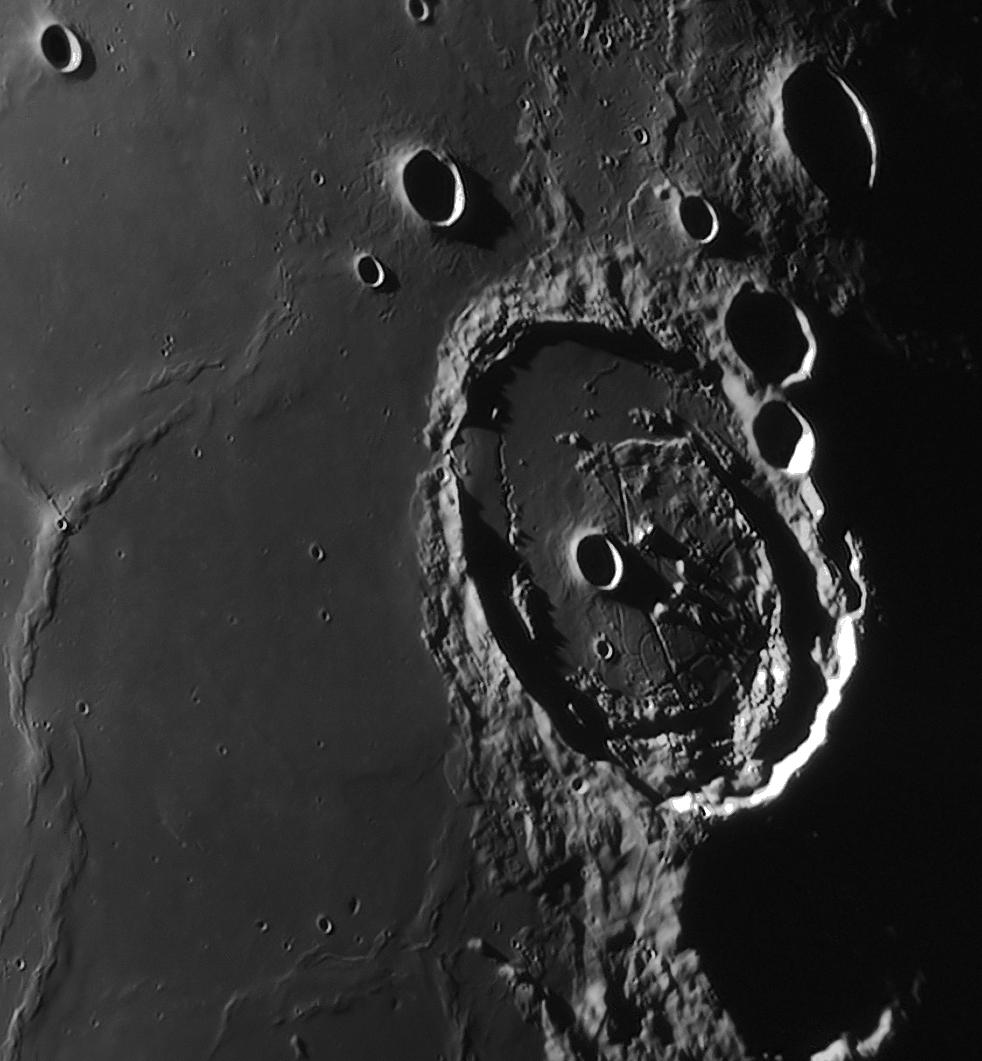
image by Wes Higgins
There is no doubt that spacecraft orbiting the Moon can take higher resolution images than amateurs on Earth using backyard telescopes; but spacecraft can’t outdo Wes for stunning beauty. Posidonius is a favorite crater because of the tilted floor, criss-crossed with rilles, and the lighting of this image gives a hyper-realistic feel for the plasticity of the surface. At the southern part of the plateau, where two rilles cross like an X, there seems to be a subtle doming. In fact, the crossed rille pattern is exactly what modelers get when they uplift a solid surface - cracks made by fracturing, not volcanism. Of course, a rising blob of magma is probably what tilted and uplifted the floor of Posidonius, as well as creating the smaller localized swelling. Wes pointed out another intriguing feature - the worm on the northern part of the lava-covered floor. I don’t remember ever seeing this feature and am baffled by it. It is too even in width to be a mare ridge, and its abrupt northern end is strange. Perhaps some day we’ll have a higher resolution orbital view to help interpretation, but I doubt if it will be more dramatic.
Technical Details:
08-03-07. 18" Reflector, Infinity 2-1m camera, MAP /99, Registered AVI processing, stack of 540 frames.
Related Links:
Rükl plate 14
Another great view
Now you can support LPOD when you buy ANY book from Amazon thru LPOD
COMMENTS?
Click on this icon File:PostIcon.jpg at the upper right to post a comment.



